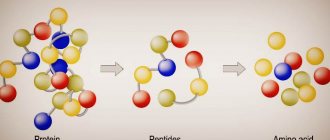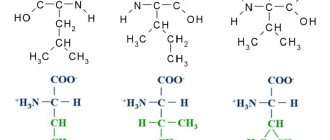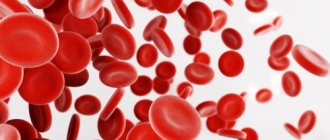2021-03-12 21:11:02 0 18519
Understanding nutritional and sports supplements can be difficult. Many people talk about them as if they were scientists. When talking about something like L-tyrosine, it can seem like people are speaking the language of chemists rather than the language of people who just exercise.
L-tyrosine is a popular dietary supplement that is believed to help with everything from muscle building to weight loss.
It can be assumed that L-tyrosine will play a significant role in building muscle mass. But the facts are that L-tyrosine can do much more. L-tyrosine plays an important role in the body and metabolism. It also increases endurance and improves brain activity.
As we explore the facts about L-Tyrosine and its benefits, we'll look at how effective it can be. This article will provide the most complete information so that you can make an informed decision about whether to take a supplement.
What is L-tyrosine?
L-tyrosine is one of 20 amino acids. L-Tyrosine is a so-called nonessential amino acid, which means it can be synthesized by the body and we don't necessarily need to get L-Tyrosine from food sources.
Chemically, L-tyrosine is called 4-hydroxyphenylalanine. As a nonessential amino acid, L-tyrosine contains a specific side group that gives it a unique molecular structure. The prefix tyros comes from the Greek word meaning cheese. The person who first isolated L-tyrosine found it in casein, which is a byproduct of cheese production.
The main functions of L-tyrosine in the body are to promote the production of catecholamines such as dopamine and adrenaline. L-tyrosine is also important for the proper functioning of the thyroid gland. The connection with thyroid function leads to one of the important uses of L-tyrosine as a supplement for weight loss and weight management.
What foods contain tyrosine?
Tyrosine is “responsible” not only for metabolic processes, but also for a person’s mood, so its presence in the “food set” is important. A varied diet will help cope with fatigue, poor health and low vitality, low body temperature and blood pressure, which is associated with a lack of essential amino acids.
You need to introduce different types of meat and offal to the menu, add legumes and cereals, nuts, and dairy products. The substance is also found in vegetables and fruits, but in small quantities. Sesame and peanuts, cheese, seafood will help relieve depression and return to an active, cheerful, adventurous life. Not only tyrosine, but also tryptophan, alanine, phenylalanine and other amino acids are needed for normal life.
But some of them are synthesized by the body on its own, while others must come from outside. By diversifying your diet, you can fill the need for the necessary components without resorting to chemicals.
What is L-tyrosine needed for?
In the body, L-tyrosine is critical for the production of several important substances. These include:
Dopamine
It is a chemical that regulates the reward centers of the brain and nervous system. It is also important for memory and motor skills.
Adrenaline and norepinephrine
These hormones trigger the body's "fight or flight" response. They prepare you for a perceived attack or threat.
Thyroid hormones
The thyroid gland regulates your entire metabolism.
Melanin
It is a chemical that gives pigment to the skin. Dark-skinned people have more melanin than light-skinned people.
Given these properties of L-tyrosine, it is not surprising that it is also used as a sports supplement.
For example, by increasing dopamine, adrenaline, and norepinephrine levels, you can improve athletic performance.
The effects of L-tyrosine supplementation on neurotransmitters may also potentially improve memory and mental performance.
Role and metabolism in the human body
The body needs tyrosine for the normal functioning of the thyroid gland, adrenal glands and pituitary gland, the formation of red and white blood cells, and the production of melanin. In addition to these functions, the substance is a precursor to most neurotransmitters.
Attention! Research has shown that a non-essential amino acid can be beneficial in situations such as physical exhaustion, fatigue, lack of sleep, and nervous shock. It improves the cognitive properties of the brain, increases performance, reduces stress hormone levels and prevents weight loss caused by depression.
Under normal conditions, tyrosine increases the concentration of dopamine, thyroxine and norepinephrine in the plasma, improves mood, and promotes proper metabolism. Research conducted in 2014 by Lawrence Colzato confirmed the effect of the amino acid on mental activity, speed of perception, analysis, return and memorization of various information.
The experiment compared the success of people who took a dietary supplement with tyrosine and those who drank a placebo. The first group of subjects was distinguished by unusual creative thinking, quickly came up with extraordinary solutions and collected disparate parts of the overall picture of events, i.e. they showed divergent thinking.
Other functions of tyrosine:
- localization of attacks of restlessness and anxiety;
- decreased appetite;
- increased performance, social activity, mental energy;
- skin rejuvenation;
- improved mood;
- prevention of psychological disorders.
A lack of tyrosine can cause significant harm to the body:
- worsen the functioning of the thyroid gland;
- lower blood pressure;
- cause signs of muscle weakness;
- rapidly increase body weight;
- provoke the appearance of nervousness;
- promote hair loss.
In children with amino acid deficiency, cases of hyperactivity, problems with adaptation, and disruption of mental and physiological processes are observed.
Now Foods, L-Tyrosine, Extra Strength, 750 mg, 90 Veggie Caps
★★★★★
899 rub.
More details
Beneficial properties of L-tyrosine:
Improved brain function
Current research suggests that L-tyrosine may help improve brain function. For example, one study that tracked the effects of L-tyrosine supplements on healthy college students found that those who took the supplement showed marked improvements in memory and attention compared to subjects who were given a placebo.
The results of these studies are being studied to see the effects of L-tyrosine on people who are living with cognitive decline as a result of conditions such as Alzheimer's disease.
Increased physical performance
L-Tyrosine has been shown to increase energy and endurance. This is great for anyone who exercises regularly. These results are particularly encouraging for endurance athletes, such as runners.
One study found that people who took L-tyrosine supplements in the form of drinks as part of regular training and exercise had improved endurance. These subjects were able to continue to exercise vigorously even in extreme conditions such as heat.
Help in stressful situations
Researchers have found that L-tyrosine helps improve something called cognitive flexibility. This is the brain's ability to effectively switch between thoughts and tasks. The reason some situations become stressful is because you are forced to quickly switch from one task to another. This leads to overload.
In studies in which people took L-tyrosine supplements and were exposed to test situations requiring cognitive flexibility, people were able to maintain short-term memory and concentration better than those who did not take L-tyrosine.
Another study conducted in women found that those who took L-tyrosine supplements showed improved short-term memory when performing complex tasks compared to those who took a placebo.
These studies have prompted researchers to explore the potential of L-tyrosine for people suffering from mental illness. This study found that L-tyrosine significantly slowed the decline of short-term memory, especially in stressful or challenging situations.
Daily norm
The body should receive from 1 to 5 g of tyrosine per day. In the form of a dietary supplement, the permissible norm is 12 g. The exact dosage is determined by gender, age, diet and is prescribed by a doctor. With a deficiency or excess of amino acids, various pathological conditions are observed. Increasing the dosage is recommended for people who are overweight, have poor memory, have problems with the functioning of the thyroid gland, are prone to depression, or are overly active.
Interesting fact: The amino acid is better absorbed when taken on an empty stomach with B vitamins and (for example, tyrosine with orange juice). The combination with St. John's wort, lemon balm, chamomile, and valerian has a positive effect on the functioning of the nervous system.
Other possible applications:
Much of the research on L-tyrosine is in its early stages. But since L-tyrosine has been found to benefit the body and brain, researchers have begun to study other areas and conditions that can be treated with L-tyrosine supplements. Conditions under which L-tyrosine is promising include:
Alcoholism
Early research suggests that L-tyrosine may help treat alcoholism when taken along with other vitamins and nutrients. There is already evidence that L-tyrosine may help relieve some alcohol withdrawal symptoms.
Consequences of drug use
Preliminary research has shown that L-tyrosine taken in the morning and tryptophan taken at night may help combat withdrawal symptoms and cravings that result from substance use.
Alzheimer's disease and other diseases leading to dementia
Research shows that taking L-tyrosine, 5-hydroxytryptophan in combination with medications helps fight dementia resulting from Alzheimer's disease.
High blood pressure
Some evidence shows a link between taking L-tyrosine and lowering blood pressure.
Excessive daytime sleepiness or narcolepsy
Research has shown that L-tyrosine may fight narcolepsy. Many people who took L-tyrosine experienced reduced symptoms.
Schizophrenia
Research shows that people with schizophrenia respond positively and have fewer symptoms after taking a combination of L-tyrosine and a conventional medication. These results were much better than what doctors observed in people taking only medications.
Wrinkles and sun damage
Research shows that a topical formulation containing L-tyrosine, vitamin C and several other compounds significantly reduces wrinkles and helps reduce the effects of sun exposure.
The results of these studies are encouraging scientists to explore the potential benefits of L-tyrosine for other serious diseases:
- chronic fatigue syndrome;
- erectile dysfunction;
- cardiovascular diseases;
- obesity;
- Parkinson's disease;
- premenstrual syndrome;
- stress;
- giving up drugs.
Contraindications and precautions
The amino acid has a serious impact on the course of life processes, so it is not suitable for everyone. There are a number of contraindications for which the supplement should not be taken:
- pregnancy and lactation (unless there are special indications);
- hypertension;
- individual intolerance to the substance;
- schizophrenia;
- treatment with antidepressants.
Children and adolescents are not prohibited from drinking tyrosine, but the intake must be agreed with a pediatrician.
How quickly is L-tyrosine absorbed?
L-tyrosine from natural food sources enters the body in the same way as all nutrients. To reap the benefits from food sources, you simply need to let your digestive system and metabolism do its thing.
L-Tyrosine from supplements goes directly into your metabolism. As a pre-workout supplement, you will feel the effects within minutes of taking the supplement. When taken as a drink or supplement, L-Tyrosine becomes available almost immediately to the muscles and brain.
Natural springs
Tyrosine, which is released in the body from phenylalanine, is found in animal products. There is a lot of it in fermented milk products and some plants.
Table 2 – Amino acid content in natural sources
| Products | Amount of tyrosine, mg/100 g |
| Hard cheese (Dutch) | 1407 |
| Soy flour | 1306 |
| Pumpkin seeds | 1000 |
| Processed cheese | 937 |
| Chicken | 896 |
| Fat cottage cheese | 875 |
| Beef | 795 |
| Sesame | 710 |
| Eggs | 652 |
| Beans | 484 |
| Tofu | 405 |
| Rye bread | 375 |
| Milk | 175 |
| Full fat kefir | 155 |
When composing a menu rich in amino acids, it should be taken into account that unprocessed meat contains one third and 50% less tyrosine than fried and stewed meat. When smoking animal products, the amount of tyrosine in them is reduced by 15%.
A diet high in carbohydrates is also unable to provide the body with sufficient amounts of nutrients. To compensate for the deficiency, it is necessary to supplement the diet with an accessible form in the form of nutritional supplements.
You will learn about what other foods contain amino acids from the video:
https://www.youtube.com/watch?v=q_4G3qYo2rk
How much L-tyrosine should you take?
The form of L-tyrosine used in supplements is an amino acid called N-acetyl L-tyrosine (NALT). This form is water soluble and easily digestible, but has a low absorption rate. This means you need to take higher doses to get real benefits.
Tyrosine supplements are usually taken in doses ranging from 500 to 2000 mg. Best results are achieved when taken 3-60 minutes before training.
If you are taking L-tyrosine to improve mental performance or increase cognitive flexibility, you may need to take a slightly different dose. “Mental clarity” can be achieved at a dosage of 45-68 mg per pound of body weight. If you weigh 150 pounds (68 kg), then 7-10 grams of L-tyrosine per day is sufficient.
The following is an approximate dosage for some purposes:
- For concentration: 150 mg per kilogram of body weight (mg/kg), divided into two doses after a sleepless night.
- For memory: 150 mg/kg to 300 mg/kg before the exam.
- For mental performance: from 100 mg/kg to 300 mg/kg before performing stressful mental work.










